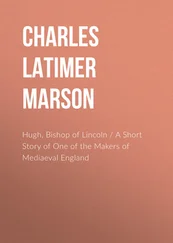Paul Vinogradoff - Villainage in England - Essays in English Mediaeval History
Здесь есть возможность читать онлайн «Paul Vinogradoff - Villainage in England - Essays in English Mediaeval History» — ознакомительный отрывок электронной книги совершенно бесплатно, а после прочтения отрывка купить полную версию. В некоторых случаях можно слушать аудио, скачать через торрент в формате fb2 и присутствует краткое содержание. Жанр: foreign_prose, Юриспруденция, История, foreign_edu, foreign_antique, на английском языке. Описание произведения, (предисловие) а так же отзывы посетителей доступны на портале библиотеки ЛибКат.
- Название:Villainage in England: Essays in English Mediaeval History
- Автор:
- Жанр:
- Год:неизвестен
- ISBN:нет данных
- Рейтинг книги:4 / 5. Голосов: 1
-
Избранное:Добавить в избранное
- Отзывы:
-
Ваша оценка:
- 80
- 1
- 2
- 3
- 4
- 5
Villainage in England: Essays in English Mediaeval History: краткое содержание, описание и аннотация
Предлагаем к чтению аннотацию, описание, краткое содержание или предисловие (зависит от того, что написал сам автор книги «Villainage in England: Essays in English Mediaeval History»). Если вы не нашли необходимую информацию о книге — напишите в комментариях, мы постараемся отыскать её.
Villainage in England: Essays in English Mediaeval History — читать онлайн ознакомительный отрывок
Ниже представлен текст книги, разбитый по страницам. Система сохранения места последней прочитанной страницы, позволяет с удобством читать онлайн бесплатно книгу «Villainage in England: Essays in English Mediaeval History», без необходимости каждый раз заново искать на чём Вы остановились. Поставьте закладку, и сможете в любой момент перейти на страницу, на которой закончили чтение.
Интервал:
Закладка:
Convention with the lord.
Even against his lord the bondman had some standing ground for a civil action. It has rightly been maintained, that he could implead his master in consequence of an agreement with him. The assertion is not quite easy to prove however, and has been put forward too sweepingly 86 86 Digby, Real Property, 3rd ed. p. 128. I may say at once that I fail to see any connexion between copyhold tenure and any express agreements between lord and villain.
. At first sight it seems even that the old law books, i.e. those of Bracton and his followers, teach the opposite doctrine. They deal almost exclusively with the case of a feoffment made by the lord to a villain and his heirs, and give the feoffee an action only on the ground of implied manumission. The feoffor enfranchises his serf indirectly, even if he does not say so in as many words, because he has spoken of the feoffee's heirs, and the villain has no other heirs besides the lord 87 87 Bracton, 192 b: 'Si autem dominus ita dederit sine manumissione, servo et heredibus suis tenendum libere, presumi poterit de hoc quod servum voluit esse liberum, cum aliter servus heredes habere non possit nisi cum libertate et ita contra dominum excipientem de villenagio competit ei replicatio.' Cf. 23 b and Britton, i. 247; Fleta, 238; Littleton, secs. 205, 207.
. The action eventually proceeds in this case, because it is brought not by a serf but by a freed man. One difficult passage in Bracton points another way; it is printed in a foot-note 88 88 Bracton, 24 b: 'Si autem in charta hoc tantum contineatur, habendum et tenendum tali (cum sit servus) per liberum servitium huiusmodi verba non faciunt servum liberum nec dant ei liberum tenementum … Quia tenementum nichil confert nec detrahit personae, nisi praecedat, ut dictum est, homagium vel manumissio, vel quod tantundem valet de concessione domini, scilicet quod villanus libere teneat et quiete et per liberum servitium, sibi et haeredibus suis . Si autem hoc solum dicatur, quod teneat per liberum servitium [sibi et heredibus suis], si ejectus fuerit a quocunque non recuperet per assisam noue disseisine, ut liberum tenementum, quia domino competit assisa et non villano. Si tamen dominus ipsum ejecerit, quaeritur, an contra dominum agere possit de conventione, cum prima facie non habet personam standi in judicio ad hoc, quod dominus teneat ei conventionem, videtur quod sic, propter factum domini sui, ut si agat de conventione, et dominus excipiat de servitute, replicare poterit de facto domini sui, sicut supra dicitur de feoffamento. Nec debent jura juvare dominum contra voluntatem suam, quia semel voluit conventionem, et quamvis damnum sentiat, non tamen fit ei injuria et ex quo prudenter et scienter contraxit cum servo suo, tacite renunciavit exceptionem villenagii.'
. There can be no doubt, that in it Bracton is speaking of a covenant made by the lord not with a free man or a freed man, but with a villain. This comes out strongly when it is said, that the lord, and not the villain, has the assize against intruders, and when the author puts the main question—is the feoffor bound to hold the covenant or not? The whole drift of the quotation can be understood only on the fundamental assumption that we have lord and villain before us. But there are four words which militate against this obvious explanation; the words ' sibi et heredibus suis .' We know what their meaning is—they imply enfranchisement and a freehold estate of inheritance. They involve a hopeless contradiction to the doctrine previously stated, a doctrine which might be further supported by references to Britton, Fleta and Bracton himself 89 89 The freehold would be given and still 'non recuperet per assisam no. diss. quia domino competit assisa et non villano.'
. In short, if we accept them, we can hardly get out of confusion. Were our text of Bracton much more definitely and satisfactorily settled than it is 90 90 See my article, 'The Text of Bracton,' in the Law Quarterly Review, i. 189, et sqq.; and Maitland, Introduction to the Note-book of Bracton, 26 sqq.
, one would still feel tempted to strike them out; as it is we have a text studded with interpolations and errors, and it seems quite certain that 'sibi et heredibus suis' has got into it simply because the compositor of Tottell's edition repeated it from the conclusion of the sentence immediately preceding, and so mixed up two cases, which were to be distinguished by this very qualification. The four words are missing in all the MSS. of the British Museum, the Bodleian and the Cambridge University Library 91 91 The Cambridge MSS. have been inspected for me by Mr. Maitland.
. I have no doubt that further verification will only confirm my opinion. On my assumption Bracton clearly distinguishes between two possibilities. In one case the deed simply binds the lord as to a particular person, in the other it binds him in perpetuity; and in this latter case, as there ought not to be any heirs of a bondman but the lord, bondage is annihilated by the deed. It is not annihilated when one person is granted a certain privilege as to a particular piece of land, and in every other respect the grantee and all his descendants remain unfree 92 92 Comp. Bracton, f. 194 b: 'Quia ex quo mentionem fecit de heredibus praesumitur vehementer, quod dominus voluit servum esse liberum quod quidem non esset, si de heredibus mentionem non fecerit .'
:—he has no freehold, but he has a special covenant to fall back upon. This seems to lie at the root of what Bracton calls privileged villainage by covenant as distinguished from villain socage 93 93 Bracton, f. 208 b: 'Est etiam villenagium non ita purum, sive concedatur libero homini vel villano ex conventione tenendum pro certis servitiis et consuetudinibus nominatis et expressis, quamvis servitia et consuetudines sunt villanae. Et unde si liber ejectus fuerit vel villanus manumissus vel alienatus ( corr. alienus best MSS.) recuperare non poterunt ut liberum tenementum, cum sit villenagium et cadit assisa, vertitur tamen in juratam ad inquirendum de conventione propter voluntatem dimittentis et consensum, quia si quaerentes in tali casu recuperarint villenagium, non erit propter hoc domino injuriatum propter ipsius voluntatem et consensum, et contra voluntatem suam jura ei non subveniunt, quia si dominus potest villanum manumittere et feoffare multo fortius poterit ei quandam conventionem facere , et quia si potest id quod plus est, potest multo fortius id quod minus est.' We have here another difficulty with the text. The wording is so closely allied to the passage on 24 b. just quoted, and the last sentences seem to indicate so clearly that the case of a privileged villain is here opposed to manumission and feoffment, that the 'villanus manumissus vel alienus' looks quite out of place. Is it a later gloss? Even if it is retained, however, the passage points to a very material limitation of the lord's power. The holding in question can certainly not be described as being held 'at will.' To me the words in question look like a gloss or an addition, although very probably they were inserted early, perhaps by Bracton himself, who found it difficult to maintain consistently a villain's contractual rights against the lord. Another solution of the difficulty is suggested to me by Sir Frederick Pollock. He thinks ' villanus manumissus vel alienus ' correct, and lays stress on the fact, that personal condition does not matter in this case: that even though the tenant be free or quoad that lord as good as free, the assize lies not and there shall only be an action on the covenant. If we accept this explanation which saves the words under suspicion, we shall have to face another difficulty: the text would turn from villanus (suus) to villanus alienus and back to villanus (suus) without any intimation that the subject under discussion had been altered.
.
Интервал:
Закладка:
Похожие книги на «Villainage in England: Essays in English Mediaeval History»
Представляем Вашему вниманию похожие книги на «Villainage in England: Essays in English Mediaeval History» списком для выбора. Мы отобрали схожую по названию и смыслу литературу в надежде предоставить читателям больше вариантов отыскать новые, интересные, ещё непрочитанные произведения.
Обсуждение, отзывы о книге «Villainage in England: Essays in English Mediaeval History» и просто собственные мнения читателей. Оставьте ваши комментарии, напишите, что Вы думаете о произведении, его смысле или главных героях. Укажите что конкретно понравилось, а что нет, и почему Вы так считаете.












